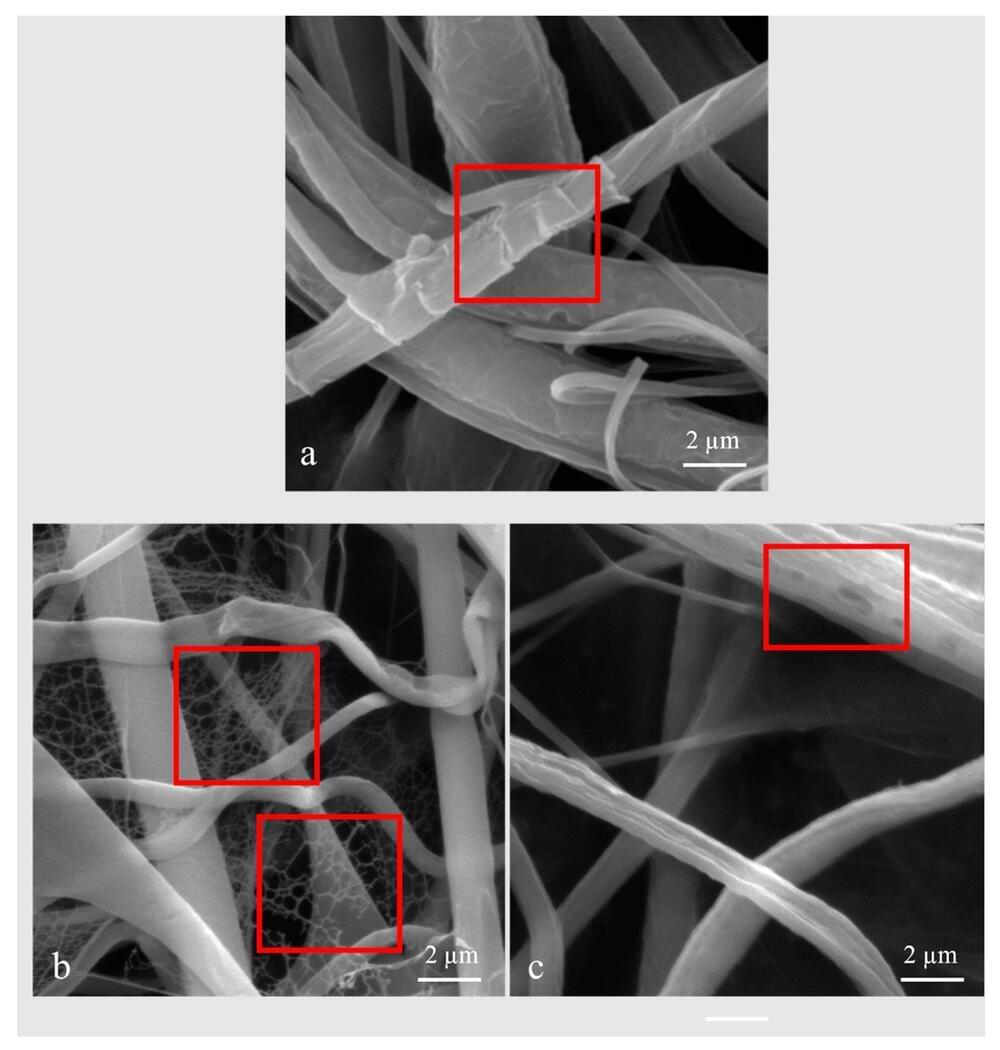A new technique for electrospinning sponges has allowed scientists from the University of Surrey to directly produce 3D scaffolds—on which skin grafts could be grown from the patient’s own skin.
Electrospinning is a technique that electrifies droplets of liquid to form fibers from plastics. Previously, scientists had only been able to make 2D films. This is the first time anybody has electro-spun a 3D structure directly and on-demand so that it can be produced to scale. The research is published in the journal Nanomaterials.
Chloe Howard, from Surrey’s School of Computer Science and Electronic Engineering, said, After spinning these scaffolds, we grew skin cells on them. Seven days later, they were twice as viable as cells grown on 2D films or mats. They even did better than cells grown on plasma-treated polystyrene—previously, the gold standard. They were very happy cells on our 3D scaffolds.
